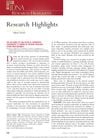 3 citations,
April 2022 in “Clinical, Cosmetic and Investigational Dermatology”
3 citations,
April 2022 in “Clinical, Cosmetic and Investigational Dermatology” Different methods, including stress management, healthy diet, supplements, and treatments like minoxidil, can help hair grow back after COVID-19 related hair loss.
 February 2024 in “Medicina-lithuania”
February 2024 in “Medicina-lithuania” Obesity and bariatric surgery can cause hair thinning and temporary hair loss due to nutritional deficiencies and stress.
 August 2022 in “International Journal of Health Sciences (IJHS)”
August 2022 in “International Journal of Health Sciences (IJHS)” Low levels of zinc, ferritin, and vitamin B12 are linked to severe hair loss in pregnant women during their last two trimesters.
 March 2012 in “EFSA Journal”
March 2012 in “EFSA Journal” Iron intake has not been proven to maintain normal hair growth.
 July 2019 in “International journal of dermatology, venereology and leprosy sciences”
July 2019 in “International journal of dermatology, venereology and leprosy sciences” Patients with Telogen effluvium have higher levels of heavy metals than healthy individuals.
180 citations,
October 2019 in “British journal of haematology” Early detection and treatment of iron deficiency in pregnancy are crucial for maternal and infant health.
 January 2007 in “Journal of The American Academy of Dermatology”
January 2007 in “Journal of The American Academy of Dermatology” Propylthiouracil, a thyroid medication, can cause skin blood clots and immune-related blood vessel inflammation.
 19 citations,
January 2015 in “Journal of Clinical and Diagnostic Research”
19 citations,
January 2015 in “Journal of Clinical and Diagnostic Research” The main causes of diffuse hair loss in women are telogen effluvium and androgenetic alopecia, often related to stress and iron deficiency.
 240 citations,
February 2005 in “Diabetes Care”
240 citations,
February 2005 in “Diabetes Care” Patients need long-term care after bariatric surgery to manage potential nutritional and metabolic issues.
 5 citations,
August 2003 in “British Journal of Dermatology”
5 citations,
August 2003 in “British Journal of Dermatology” Iron deficiency might contribute to hair loss in women.
 67 citations,
November 2002 in “Journal of The American Academy of Dermatology”
67 citations,
November 2002 in “Journal of The American Academy of Dermatology” The document concludes that careful evaluation is key to diagnose and treat women with hair loss, with tests for thyroid, iron, and hormones as needed.
 2 citations,
August 2002 in “Zeitschrift für Hautkrankheiten”
2 citations,
August 2002 in “Zeitschrift für Hautkrankheiten” Telogen effluvium is a hair loss condition caused by various factors and requires a thorough examination to diagnose and differentiate from other hair loss types.
 1 citations,
January 2002 in “Journal of Clinical Dermatology”
1 citations,
January 2002 in “Journal of Clinical Dermatology” Low iron levels in the blood may be linked to chronic hair loss in women.
 July 2011 in “Journal of the Dermatology Nurses’ Association”
July 2011 in “Journal of the Dermatology Nurses’ Association” Antibiotic ointment and petrolatum ointment heal wounds similarly; iron deficiency isn't linked to certain hair loss in women; griseofulvin and terbinafine are equally effective for fungal scalp infections but work better on different types.
 January 2024 in “The American journal of medicine”
January 2024 in “The American journal of medicine” Even after successful weight loss surgery, a patient can have health issues like fatigue due to nutrient deficiencies and hormone imbalances.
 56 citations,
January 2008 in “Dermatology”
56 citations,
January 2008 in “Dermatology” Higher iron levels in the blood are not linked to increased hair loss in women.
 July 2003 in “Journal of Cutaneous Medicine and Surgery”
July 2003 in “Journal of Cutaneous Medicine and Surgery” Certain drugs can cause lupus, stopping these drugs is the main treatment. NB-UVB phototherapy clears psoriasis faster when applied three times a week. Monoclonal antibodies and oral pimecrolimus are effective in treating psoriasis. Smoking and drinking are linked to psoriasis in men. No direct link between low iron and hair loss was found. Vaccines are effective against genital herpes and human papillomavirus type 16.
 6 citations,
October 2012 in “BMJ”
6 citations,
October 2012 in “BMJ” The woman's hair loss was mainly due to stress and low iron levels, and her hair grew back after treatment.

Low Vitamin D, Vitamin B12, and iron levels, as well as thyroid issues, are strongly linked to premature greying of hair, which also negatively affects quality of life.
October 2006 in “Clinical Cancer Research” Antioxidants can block the cancer-fighting effects of doxorubicin.
 October 2005 in “CRC Press eBooks”
October 2005 in “CRC Press eBooks” Telogen effluvium is a condition where hair falls out due to various factors like illness, stress, or nutrient deficiency.
 83 citations,
November 2002 in “British Journal of Dermatology”
83 citations,
November 2002 in “British Journal of Dermatology” Low iron levels are not directly linked to chronic hair loss and iron supplements may not help.
 15 citations,
January 1971 in “British Journal of Dermatology”
15 citations,
January 1971 in “British Journal of Dermatology” Hair can indicate early signs of metabolic disorders, with issues like protein deficiency stopping hair growth.
Early diagnosis and personalized treatment are crucial for managing pediatric androgenetic alopecia.
 November 1966 in “British Journal of Dermatology”
November 1966 in “British Journal of Dermatology” The meeting discussed various skin conditions, treatments, and unusual cases, highlighting the effectiveness of tetracycline in treating rosacea.
 November 2021 in “Permskij medicinskij žurnal”
November 2021 in “Permskij medicinskij žurnal” Women with menstrual dysfunction often have deficiencies in magnesium, iron, and vitamin D.
 9 citations,
January 2014 in “World journal of gastroenterology”
9 citations,
January 2014 in “World journal of gastroenterology” A gluten-free diet stopped a child's hair-eating behavior and suggested she had celiac disease.
 1 citations,
January 2021 in “Journal of biological chemistry/The Journal of biological chemistry”
1 citations,
January 2021 in “Journal of biological chemistry/The Journal of biological chemistry” FLCN helps control iron levels in cells.
2 citations,
January 2015 in “Journal of Health Science” Iron deficiency is more common in women with excessive hair loss.
4 citations,
January 2005 Low iron levels are linked to hair loss in adult women.
























